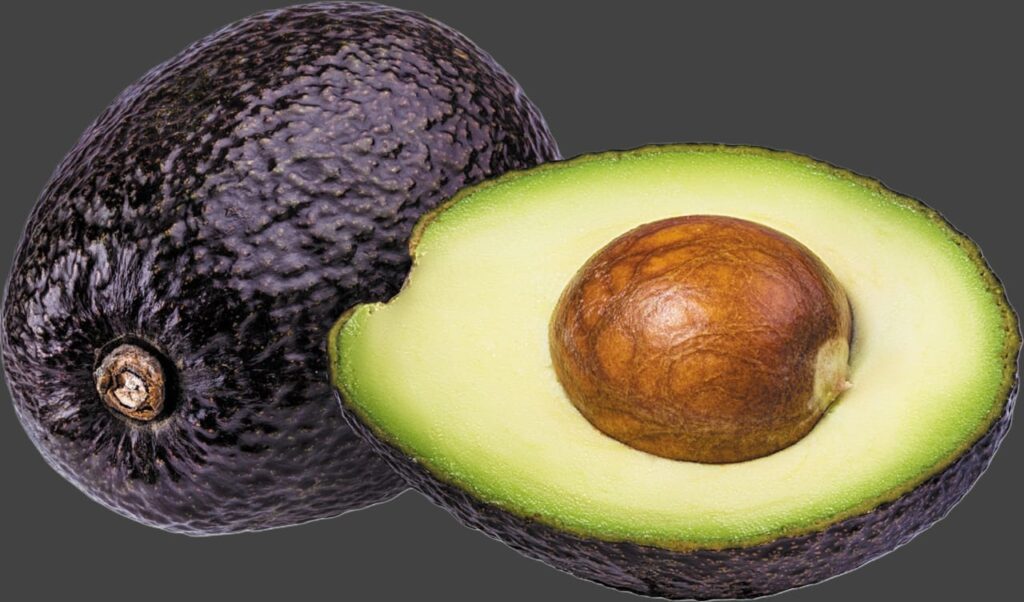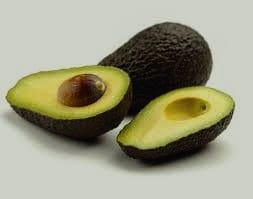Avocados have surged in popularity over recent years, becoming a staple in many diets worldwide. This creamy, nutrient-packed fruit offers more than just great taste—it’s a powerhouse of essential nutrients that can boost your health. In this guide, we’ll dive into the avocado nutrition facts, exploring its calorie content, vitamins, minerals, and the health benefits that make it a superfood.

1. Understanding Avocado Calories and Serving Size
One of the most common questions people have is about the calorie content in avocados. A typical medium-sized avocado (about 150 grams) contains around 240-250 calories. These calories come primarily from healthy fats, making avocados an excellent choice for those who follow a balanced diet.
For portion control, note that the recommended serving size is about one-third of a medium avocado, which contains roughly:
- 80 calories
- 8 grams of fat
- 4 grams of carbohydrates
- 1 gram of protein
2. Healthy Fats: Avocado’s Secret Weapon
When it comes to fats, not all are created equal. Avocados are rich in healthy monounsaturated fats, particularly oleic acid, which is known for its heart-healthy benefits. These fats can:
- Lower bad cholesterol (LDL)
- Increase good cholesterol (HDL)
- Reduce inflammation
These healthy fats are crucial for brain function, hormone production, and even aiding in the absorption of fat-soluble vitamins like A, D, E, and K.
3. Rich in Fiber for Digestive Health
Avocados are also an excellent source of dietary fiber, containing about 10 grams of fiber per medium avocado, which is roughly 40% of the daily recommended intake. This fiber is a mix of both soluble and insoluble fiber, which helps in:
- Promoting regular bowel movements
- Supporting a healthy gut microbiome
- Lowering blood sugar levels
- Increasing satiety, aiding in weight management
4. Essential Vitamins and Minerals in Avocados
One of the reasons avocados are considered a superfood is their impressive range of vitamins and minerals. Here are some key nutrients found in avocados:
- Vitamin K: Important for blood clotting and bone health, one avocado provides over 25% of the daily value (DV).
- Folate (Vitamin B9): Essential for cell function and tissue growth, particularly crucial for pregnant women. One avocado offers about 30% of the DV.
- Vitamin C: Known for boosting the immune system, aiding in collagen production, and antioxidant properties, containing about 20% of the DV.
- Vitamin E: A powerful antioxidant that protects cells from damage, about 10% of the DV is found in a medium-sized avocado.
- Potassium: Avocados are richer in potassium than bananas, with one fruit offering 975 mg of potassium, nearly 28% of the DV. Potassium is vital for heart health, muscle function, and blood pressure regulation.
- Magnesium: Supports muscle and nerve function, regulating blood sugar levels, and has anti-inflammatory properties.

5. Avocado’s Impact on Heart Health
Due to their high levels of monounsaturated fats and potassium, avocados are excellent for heart health. These nutrients work together to maintain healthy blood pressure, reduce the risk of heart disease, and support overall cardiovascular function. Key heart health benefits include:
- Lowering blood pressure: Thanks to potassium, avocados help balance the negative effects of sodium.
- Reducing cholesterol levels: The fiber and healthy fats in avocados contribute to reducing LDL cholesterol while increasing HDL cholesterol.
- Anti-inflammatory effects: Avocados contain compounds like phytosterols and antioxidants that reduce inflammation in the cardiovascular system.
6. Avocado and Weight Management
Despite being calorie-dense, avocados can be a great addition to a weight management plan. Their combination of healthy fats, fiber, and nutrients makes them incredibly filling, which can help reduce overall calorie intake throughout the day. Studies suggest that people who include avocados in their diets tend to have:
- Better nutrient absorption
- Lower body weight
- Improved metabolic health
7. Antioxidants in Avocado: Protecting Your Cells
Avocados are packed with powerful antioxidants like lutein and zeaxanthin, which play a significant role in protecting the body from oxidative damage. These antioxidants are particularly beneficial for:
- Eye health: Protecting against cataracts and age-related macular degeneration.
- Skin health: Supporting collagen formation and providing a natural glow.
- Cell protection: Fighting free radicals that can lead to chronic diseases and aging.
8. The Protein Content in Avocado
While avocados are not a high-protein food, they do contain a modest amount of plant-based protein, approximately 3 grams per medium avocado. This protein is easily digestible and complements other plant-based protein sources in a vegetarian or vegan diet.
9. Avocado and Blood Sugar Control
Avocados are low in carbohydrates, making them an ideal choice for those managing blood sugar levels. They have a low glycemic index, meaning they don’t cause a rapid spike in blood sugar. The fiber in avocados also plays a crucial role in stabilizing blood sugar levels by slowing down digestion and the absorption of carbohydrates.
10. Avocado Nutritional Value per 100 grams
To give a clearer picture, here’s a breakdown of the nutritional value of avocado per 100 grams:
- Calories: 160
- Protein: 2 grams
- Carbohydrates: 9 grams
- Sugars: 0.7 grams
- Fiber: 7 grams
- Fat: 15 grams
- Saturated fat: 2.1 grams
- Monounsaturated fat: 10 grams
- Polyunsaturated fat: 1.8 grams
- Potassium: 485 mg
- Vitamin K: 21 mcg (20% DV)
- Folate: 81 mcg (20% DV)
- Vitamin C: 10 mg (11% DV)
11. Why Avocados are Great for Skin and Hair
The healthy fats, vitamins, and antioxidants in avocados make them a fantastic food for skin and hair health. They are known to:
- Hydrate the skin: Thanks to healthy fats, which provide natural moisture.
- Boost collagen production: With vitamin C aiding in collagen formation, which keeps the skin firm and youthful.
- Nourish hair: Fatty acids and vitamin E help keep hair shiny, strong, and healthy.
12. Avocado as a Source of Energy
Avocados are an excellent source of sustained energy. Unlike quick-energy carbs that cause blood sugar spikes, avocados offer a steady energy release due to their fiber, healthy fats, and protein. This makes them an ideal food for:
- Pre-workout snacks for sustained energy
- Midday meals to avoid energy crashes
- Balanced breakfast options to keep you full until lunch
13. How to Incorporate Avocado into Your Diet
Adding avocados to your diet is simple and versatile. Here are some delicious ways to enjoy them:
- In salads: Add diced or sliced avocado for a creamy texture.
- As a spread: Use mashed avocado instead of butter on toast for a healthier option.
- Smoothies: Blend avocados with fruits and greens for a nutrient-dense smoothie.
- Guacamole: A classic dip made with mashed avocados, lime, cilantro, onions, and tomatoes.
- As a topping: Slice avocados over tacos, grain bowls, or sandwiches.
- In desserts: Use avocados as a creamy base for chocolate mousse or ice cream.
14. Avocado Oil: A Nutritional Alternative
Avocado oil, extracted from the flesh of the avocado, is another excellent way to enjoy the nutritional benefits of avocados. Rich in healthy fats, avocado oil is perfect for:
- Cooking: Due to its high smoke point, it’s great for sautéing, grilling, or baking.
- Salad dressings: A heart-healthy alternative to other oils like canola or vegetable oil.
- Skincare: It can be used topically to moisturize and nourish the skin.
15. Common Myths About Avocados Debunked
Despite the many benefits, there are a few myths about avocados that deserve clarification:
- Myth: Avocados are too fattening. Truth: The fats in avocados are healthy fats that can aid in weight management.
- Myth: Avocados raise cholesterol. Truth: Avocados help improve cholesterol profiles by lowering bad cholesterol and increasing good cholesterol.
- Myth: Avocados are not good for diabetics. Truth: Due to their low glycemic index, avocados are suitable for managing blood sugar levels.
16. Sustainable Eating: The Environmental Impact of Avocados
Sustainability is a growing concern for consumers, and avocados are no exception. The environmental impact of avocado farming varies depending on the region and farming practices, but there are ways to consume avocados more sustainably:
- Choose local or sustainably sourced avocados when possible.
- Support brands that follow eco-friendly farming practices.
- Reduce waste by using every part of the avocado, including the seed for crafts or the peel for composting.
17. Are There Any Risks to Eating Avocados?
While avocados are generally safe for most people, a few considerations include:
- Allergies: Some individuals may be allergic to avocados, especially if they have latex allergies.
- High-calorie content: Portion control is essential if you are on a calorie-restricted diet.
- Medication interaction: Avocado can interact with certain medications, like blood thinners, due to its vitamin K content. Consult a healthcare provider if necessary.
18. Fun Facts About Avocados You Might Not Know
- Avocados are technically a fruit, specifically a berry.
- There are over 500 varieties of avocados, with Hass being the most popular.
- An avocado tree can produce up to 500 avocados per year.
- The largest avocado on record weighed over 5 pounds!
